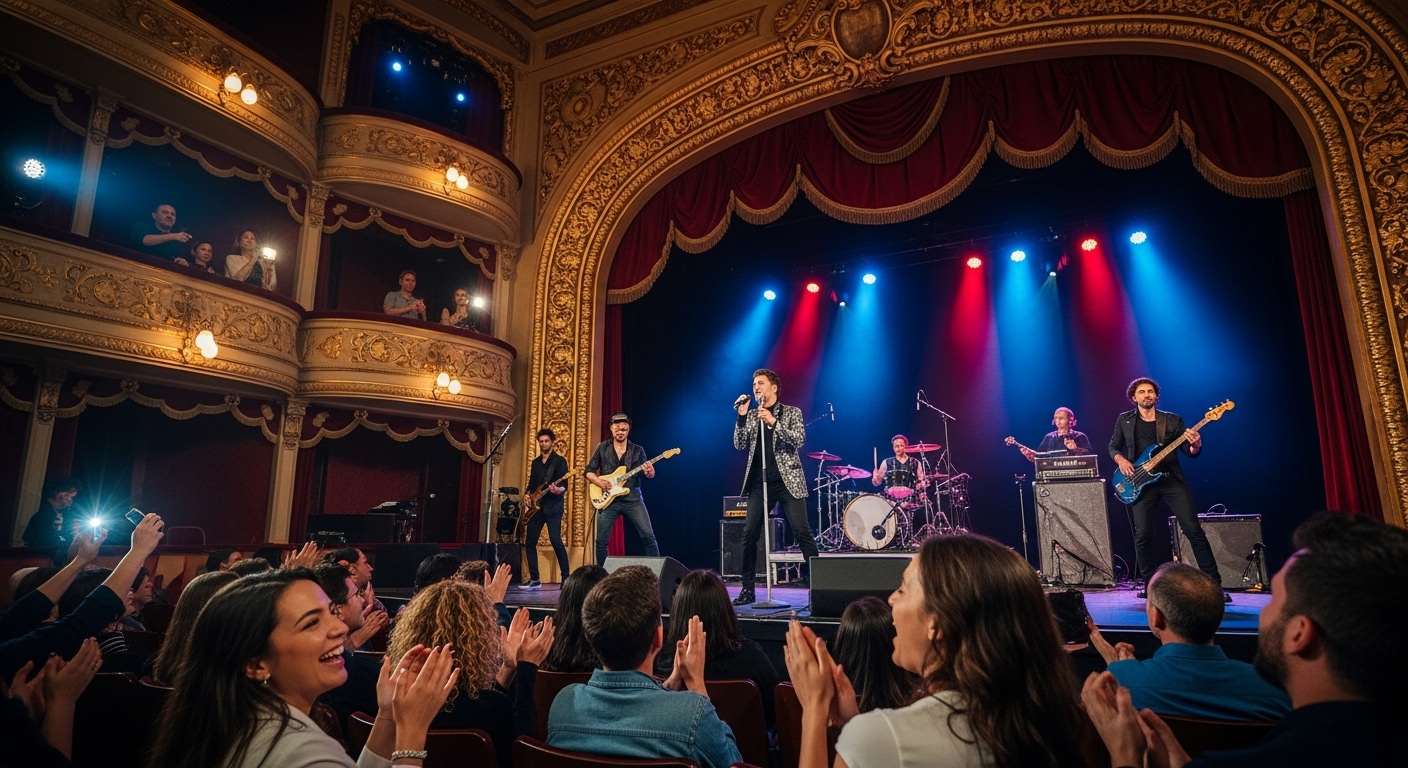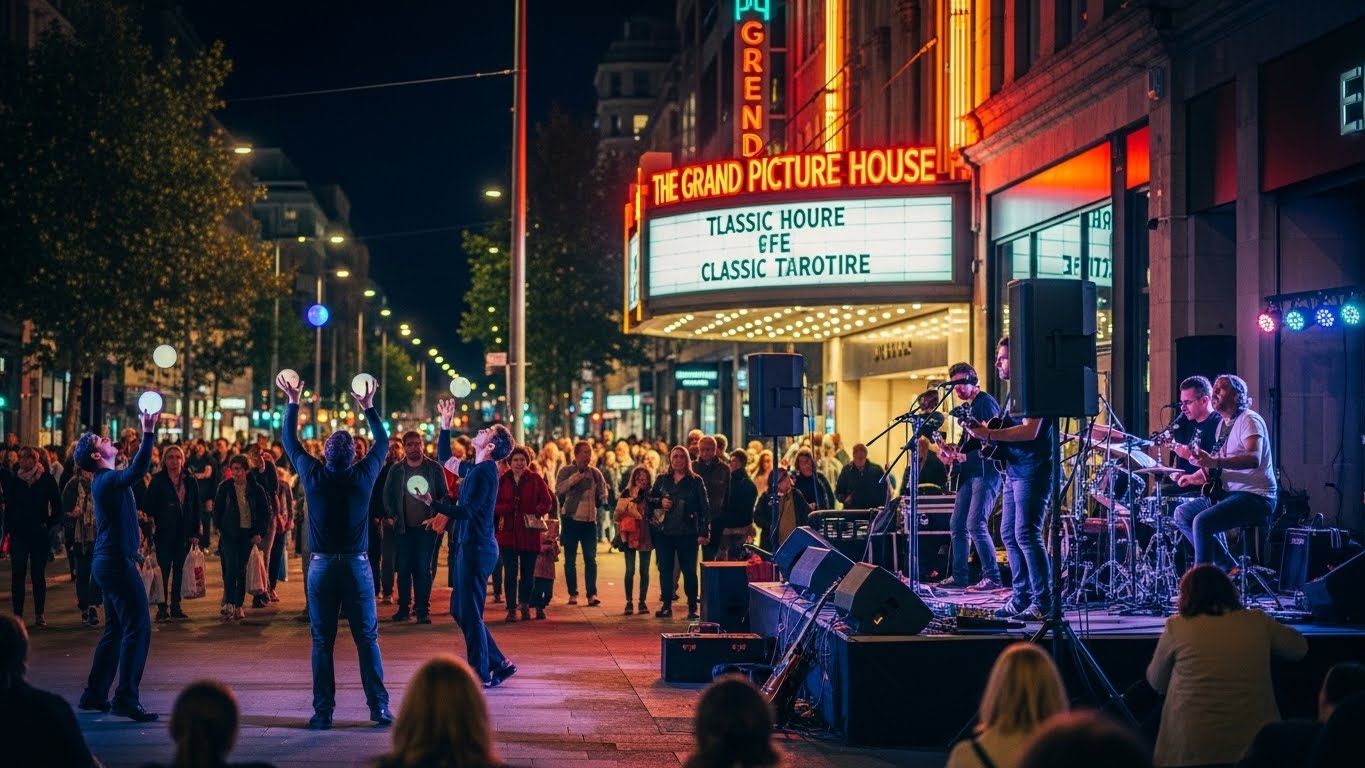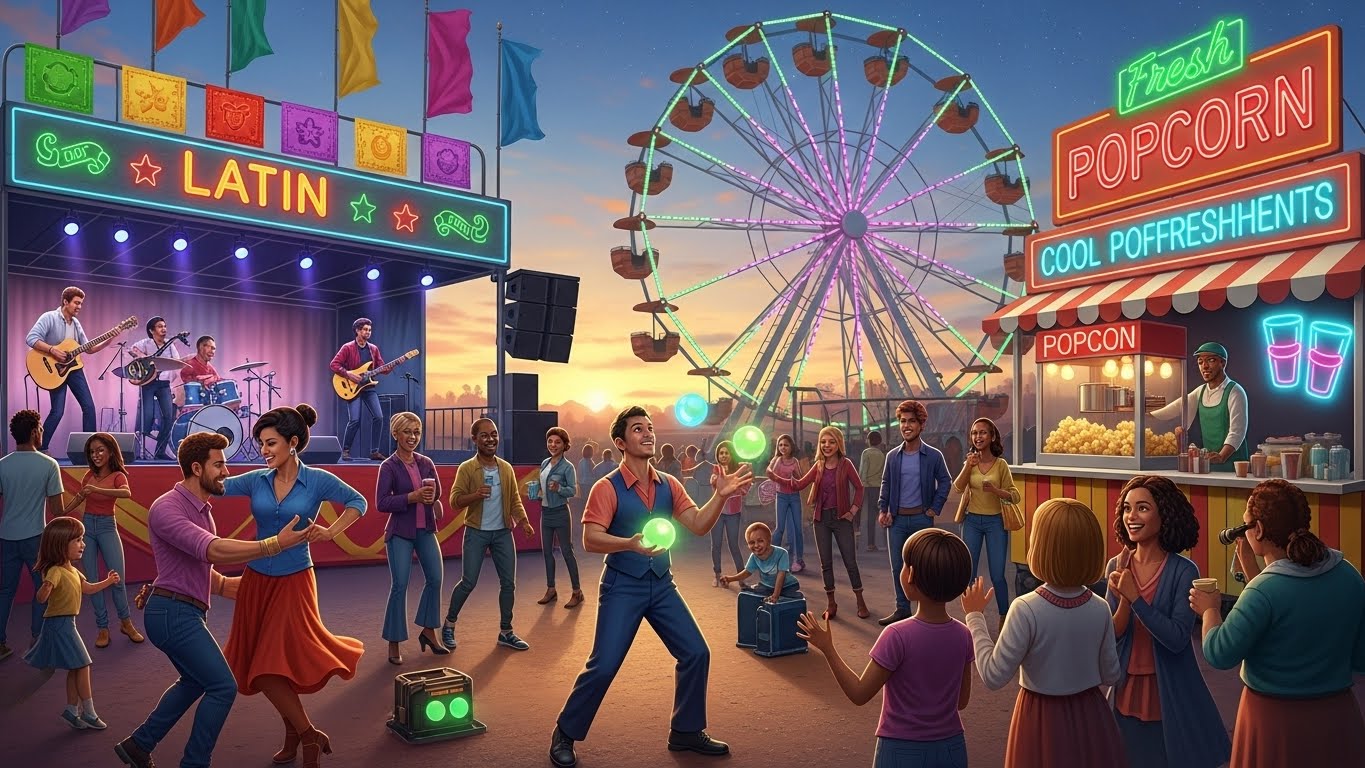Entertainment has been an essential part of human culture for millennia. From the earliest storytellers around campfires to the grand theaters of the Renaissance, entertainment has been a source of joy, learning, social connection, and escapism. In today’s fast-paced world, entertainment is more varied, accessible, and technologically advanced than ever before. It influences culture, shapes identities, and reflects the times we live in.
This blog post dives deep into the world of entertainment, examining its evolution, current trends, the impact of technology, and what the future might hold for how we relax, connect, and enjoy ourselves.
The Historical Roots of Entertainment
Entertainment is as old as humanity itself. Ancient civilizations found countless ways to amuse themselves and their communities, from music and dance to storytelling and games. Early humans used entertainment as a method of passing down knowledge, building bonds, and making sense of the world.
In Ancient Greece, theatrical performances became a central cultural activity, producing some of the earliest forms of drama and comedy. Roman gladiatorial games showcased a more violent form of entertainment, but one that drew enormous crowds and had social and political significance.
As civilizations evolved, so did entertainment. The invention of the printing press in the 15th century allowed stories to reach wider audiences through books. The 19th century ushered in new forms of entertainment such as operas, circuses, and eventually cinema.
The Explosion of Entertainment in the Modern Era
The 20th century saw an explosion of new entertainment mediums. Radio brought music and storytelling into homes worldwide, making entertainment a more private and personal experience. Television revolutionized visual storytelling and became the centerpiece of family entertainment.
Cinema, evolving from silent black-and-white films to today’s immersive blockbusters, created global superstars and influenced culture on a massive scale. The music industry flourished with the rise of records, tapes, CDs, and digital formats.
In the last few decades, the internet has transformed the entertainment landscape. Streaming services, social media platforms, and gaming have opened up a vast universe of content accessible anytime, anywhere. This revolution has democratized entertainment creation and consumption, enabling creators and audiences from all corners of the world to connect like never before.
Entertainment Today: A Multifaceted Industry
Today, entertainment encompasses an array of formats, each offering unique experiences.
Film and Television
Film and television remain foundational pillars of entertainment. Hollywood and other film industries worldwide produce hundreds of movies annually, ranging from blockbuster action films to independent dramas and documentaries. Television has diversified with hundreds of channels and streaming services offering endless options, from scripted series to reality shows and talk programs.
Streaming platforms have reshaped how viewers consume content, allowing binge-watching and on-demand access. The rise of original streaming content has led to a new golden age of television, with complex storytelling and high production values.
Music
The music industry has undergone radical changes thanks to digital technology. The transition from physical sales to streaming platforms has transformed how artists distribute their work and how fans discover new music.
Genres continue to evolve and blend, creating exciting crossovers. Live music, concerts, and festivals remain essential for many fans, providing communal experiences that digital cannot replicate fully.
Gaming
Video games are one of the fastest-growing entertainment sectors globally. What began as simple pixelated games has matured into immersive virtual worlds with intricate storylines, realistic graphics, and expansive multiplayer communities.
Gaming is not only entertainment but also a social platform. Players connect across continents, building friendships, competing, and collaborating. Esports, the competitive side of gaming, has created a new category of entertainment with professional leagues, tournaments, and huge audiences.
Books and Literature
While digital formats have impacted reading habits, books remain a cherished form of entertainment and learning. Audiobooks and e-books have expanded access, but the tactile pleasure of holding a book is still unmatched for many.
Literature continues to inspire adaptations in film, TV, and gaming, showing the interconnectedness of entertainment forms.
Live Performances and Events
Theatrical productions, concerts, dance, stand-up comedy, and festivals provide live entertainment experiences that engage all senses and create shared moments. These events foster community and cultural exchange.
The COVID-19 pandemic challenged live entertainment, but innovations like virtual concerts and online performances helped sustain the connection between artists and audiences.
The Impact of Technology on Entertainment
Technological advancements are central to the ongoing transformation of entertainment. The following are some key technological drivers:
Streaming and On-Demand Content
The shift to streaming has changed consumption habits drastically. Viewers expect instant access to vast libraries of content without waiting for scheduled broadcasts. This has forced traditional media to adapt and new players to emerge, changing the economic landscape of entertainment.
Virtual Reality and Augmented Reality
Virtual reality (VR) and augmented reality (AR) technologies offer immersive experiences that blur the lines between the digital and physical worlds. VR gaming, virtual concerts, and AR-enhanced performances are opening new frontiers in entertainment.
While still in early stages, these technologies promise to transform how we experience stories, games, and live events, making entertainment more interactive and personal.
Artificial Intelligence and Personalization
Artificial intelligence (AI) helps curate personalized entertainment experiences, suggesting films, music, or games based on user preferences. AI is also used in creating content, from writing scripts to generating music, enabling new creative possibilities.
Interactive entertainment powered by AI, where narratives adapt based on user choices, is becoming more popular, giving audiences a sense of agency and immersion.
Social Media and User-Generated Content
Platforms like Instagram, TikTok, and YouTube have empowered individuals to create and share their own entertainment content. This has diversified the types of entertainment available and disrupted traditional gatekeepers like studios and record labels.
Social media also plays a huge role in shaping trends, promoting new artists, and engaging audiences through challenges, memes, and viral content.
Entertainment and Culture: Reflecting and Shaping Society
Entertainment is not just a way to pass the time; it is a mirror of society and a powerful tool for shaping cultural norms and values.
Movies, music, and other forms of entertainment often reflect social issues, historical moments, and collective hopes and fears. They can challenge stereotypes, spark dialogue, and inspire change.
Moreover, entertainment fosters shared experiences and collective memory. National holidays, cultural festivals, and community events often involve entertainment as a way to connect people and celebrate identity.
Globalization has also led to the blending of cultural influences in entertainment, enriching it with diverse voices and stories. International hits and cross-cultural collaborations are common, promoting understanding and exchange.
Challenges Facing the Entertainment Industry
Despite its growth and innovation, the entertainment industry faces several challenges.
Content Saturation and Attention Economy
The sheer volume of available content can overwhelm audiences. Consumers often struggle to find quality content amidst endless options, leading to fragmented attention and shorter engagement spans.
Monetization and Sustainability
The shift to digital and streaming models has disrupted traditional revenue streams, causing financial uncertainty for creators, studios, and musicians. Finding sustainable business models that fairly compensate artists while keeping content affordable remains an ongoing challenge.
Ethical and Social Concerns
Entertainment often grapples with ethical issues such as representation, diversity, and the impact of violent or harmful content. There is growing awareness of the need for inclusivity and responsibility in storytelling.
Privacy concerns also arise with personalized content and data collection by entertainment platforms.
Technological Barriers and Accessibility
While technology enhances entertainment, it can also exclude those without access to high-speed internet or modern devices. Ensuring entertainment remains inclusive and accessible is a vital consideration.
The Future of Entertainment: Trends to Watch
Looking ahead, several trends are likely to shape the entertainment landscape.
Increased Interactivity
Future entertainment will become more interactive, with audiences influencing storylines, characters, and outcomes. This shift from passive consumption to active participation will redefine engagement.
Integration of AI and Machine Learning
Artificial intelligence will increasingly assist in content creation, marketing, and user experience optimization, making entertainment more tailored and innovative.
Cross-Media Experiences
Blending of entertainment forms — such as games turning into movies, books becoming virtual reality experiences — will create richer, multi-sensory storytelling.
Sustainability and Social Impact
As consumers become more conscious, entertainment companies will likely emphasize sustainability, diversity, and social responsibility in their content and operations.
Conclusion: Entertainment as a Living, Breathing Art Form
Entertainment is much more than a way to fill time; it is a vital human need and a dynamic art form that evolves with society. It connects us, challenges us, and provides moments of joy, reflection, and inspiration.
As technology and culture continue to change, entertainment will keep transforming, offering new ways for us to experience stories, music, games, and live events. Whether through a blockbuster film, a viral video, a live concert, or an immersive virtual world, entertainment remains at the heart of our shared human experience.
By understanding its history, appreciating its diversity, and embracing innovation responsibly, we can enjoy an ever-richer tapestry of entertainment for generations to come.



